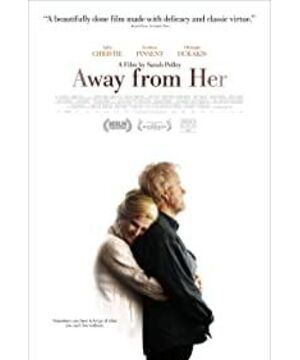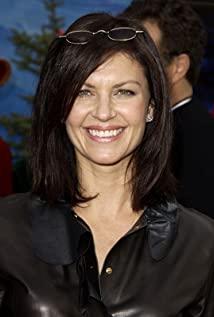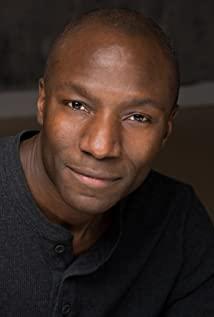At the most inopportune time, I watched such a movie. It's been a while since I've had "The Willows and Flowers" on my computer. I haven't had much interest in watching it, but I'm reluctant to delete it. First, I want to see if Christie's acting skills are as good as the legends, and of course I want the other one. Get to the bottom of the film's theme - how love lives on in the disappearance of memory.
I remember watching a movie a long time ago called "The Notebook". I always regarded this movie as a bloody drama, but my ex-girlfriend liked it very much. At the end of that film, there was also an unexplained episode of Alzheimer's torture of each other's love in their later years, which made me feel like I was in a fog. In this way, "The Willows and Flowers" is a movie that has been extracted separately and enlarged to watch carefully.
Maybe it's because I don't have 45 years of emotional experience, and I can only understand the deep meaning of this movie with only a few short-lived love experiences. So inevitably I will feel a little lack of concentration in a lot of trivial sadness. But fortunately, the film is still quite strong in terms of emotional conflict. The director's deliberate design of the hospital supervisor, and the little humor similar to Grant's disheveled clothes being despised by nurses after having sex, also makes the film look a bit dull. Weak jumps.
But to really appreciate such a film, you still have to think deeply about some issues.
First of all, we have to answer the first question, what is "I". Many parents will say, if we were what we were, we would not have you. Many people will often ask themselves when they think too much: "What is 'I'? Why in this body? If the body is destroyed, where will 'I' live?" Many of us think about this question. At that time, I didn't think about anything about "memory". In the eyes of many people, "I" is an independent existence like a soul, sometimes even above the body. In fact, the generation of "I" is nothing but a condensation of memory. There are countless information in the world, and a person has just been exposed to such information in decades of experience, then this information forms a node in the person's brain with storage function, this node is the so-called sense of "self". It does not mean that if the mother changes her husband, "I" will cease to exist. It has never been a simple material matching like heredity of appearance, but an accidental gathering of information. So back to "The Willows and Flowers", when Fiona first recalled the time when she was just ill, she felt vain (emptiness), we have always experienced the enrichment of our self-image, or the worldview and life outlook we often say , the establishment of values. But we never experience the fading of the self. That feeling of not knowing yourself more and more every day.
Then the second question, how did Fiona fall in love with Grant. She was forgetting about Grant every day, and they fell in love by inertia. Grant's company makes Fiona feel warm, and she almost lives in a semi-closed world. Although she forgets every day, she has never been exposed to new things. Grant, on the other hand, lives in his own memories. Those sweet memories gave him the illusion that his love still existed, but it was only a one-sided emotional response. Grant's love was different from the love that Fiona felt, but they The two of them didn't notice.
The hospital is an extreme laboratory-like environment, which makes Grant and Fiona's love lose the spatial bond of last contact. When Fiona begins to adjust to starting a new life without Grant, her former love is destined to fall victim to Alzheimer's. When Grant finds out that Fiona has forgotten him and accepts another patient with whom he lives every day, his love affair begins to unravel. How can a person insist on loving another person without getting any feedback? What's more, all the reasons for loving a person seem to have never existed to the other person. Every day Grant sits on the sofa in the hospital, watching Fiona and Aubery get in and out of love, there seems to be no more desperate love in the world than this. Grant also tried to save Fiona from the loss of herself, but the latter said to him, "It's only when she's with Aubery that she won't be confused." The conditions under which all love can arise are all different, That is to say, once the memory is lost, it is impossible for the current Fiona to fall in love with Grant again.
Grant will of course be seduced by another woman, Marian. This woman is actually the wife of an Alzheimer's patient and Aubery's wife. This kind of plot design is a bit deliberate, but it makes the core of the story relatively more concentrated. Grant cheated, and judging from the dialogue, more than once. Marian's remarks about fate seemed to point to the point, which made the audience's thinking about the movie's plot a lot easier. In the face of despair, some people choose to be angry, some people choose to accept, and people in the world are divided into two types. Marian is obviously the latter, and Grant tries to find happiness, but he and Marian end up feeling lost after having sex. This may be the director's definition of happiness and love: it is not a physical pleasure, nor does it have to be mutual affection, selfless giving and responsibility, that is, a kind of love that can make you feel at ease. This topic may seem a little too idealistic, but who dares to say no? Who wouldn't want to live in their spiritual greatness and believe that the beautiful love they once had was worthy of such sacrifice?
In the end, Grant chooses to push Aubery's wheelchair into Fiona's room by himself, and Fiona just happens to get the occasional faint impression. Taking advantage of her ambiguity, she persuaded Grant to abandon her, just as many of Grant's colleagues abandoned their wives many years ago, but Grant shed tears and said the most touching line "not a chance" .
By the way, as a digression, criticize the translation of the version of the Garden of Eden that I saw. I think the phrase "not a chance" is very representative of the film's intention, and the mistranslation of this sentence may also happen to be a misunderstanding that many viewers may have about this movie. The subtitle of the Garden of Eden translates it as "Never again", that is to say, Grant admitted that he had abandoned Fiona, indicating that the derailment, for Grant, was a complete betrayal of love. But if the correct translation, I think it should be "absolutely not", even if there has been a physical affair, Grant has always loved Fiona deeply, and I am willing to believe this.
View more about Away from Her reviews











